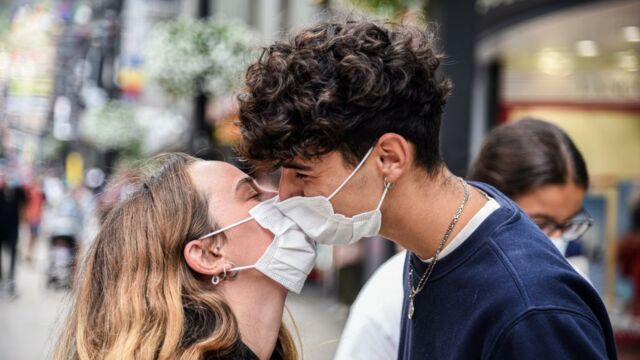The pandemic has undoubtedly affected various aspects of people’s lives, especially relationships. But a new research shows that couples who feared contracting the virus may have improved their sex lives.
Discover our latest podcast
The study, conducted by psychologists at the Lisbon University and the Kinsey Institute in Indiana, found that lifestyle changes resulted in positive sexual desire for 'participants with high (vs. low) fear of COVID-19 infection.'
Fear -induced Sex Drive
The research, published in The Journal of Sex Research, analysed 303 romantic couples in a cross-sectional study. Researchers found that:
For these participants, sexual desire was associated with positive changes in one’s sex life and wanting to spend time with one’s partner, but not with overall relationship quality.
The research authors also indicated that the results from the survey were consistent after controlling for pandemic-related anxiety and demographic variables. They concluded that:
This study advances literature focused on the importance of romantic relationships in stress-provoking situations such as the Covid-19 pandemic by shedding light on the association between sexual desire and personal and relational wellbeing.
Contradictory Findings
These findings are in contradiction with a previous study published last year, which suggested that couples were experiencing a decline in their sexual desire for each other during the pandemic.
The 2020 study, published in the Leisure Sciences journal, found that nearly half of the 1,560 adults surveyed reported that the coronavirus outbreak had a negative effect on their sex lives.
However, those who remained sexually active at the peak of the pandemic were found to be sexually adventurous. One in five participants in that study expanded 'their sexual repertoire by incorporating new activities. Common additions included sexting, trying new sexual positions, and sharing sexual fantasies.'
Researchers also highlighted age was a factor in how much impact the virus had on a couple’s sex life. They added:
Being younger, living alone, and feeling stressed and lonely were linked to trying new things. Participants making new additions were three times more likely to report improvements in their sex life.















